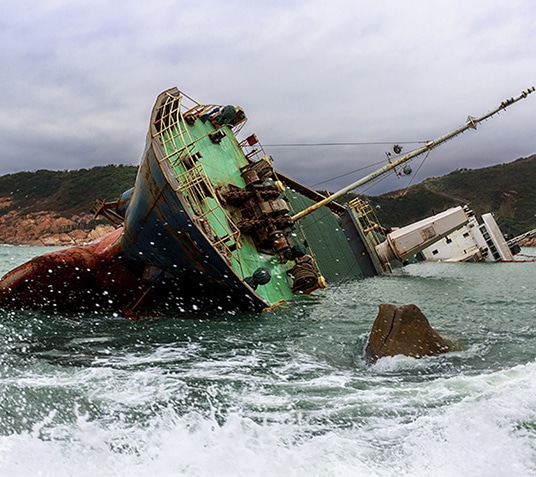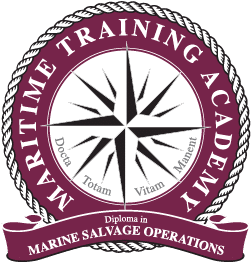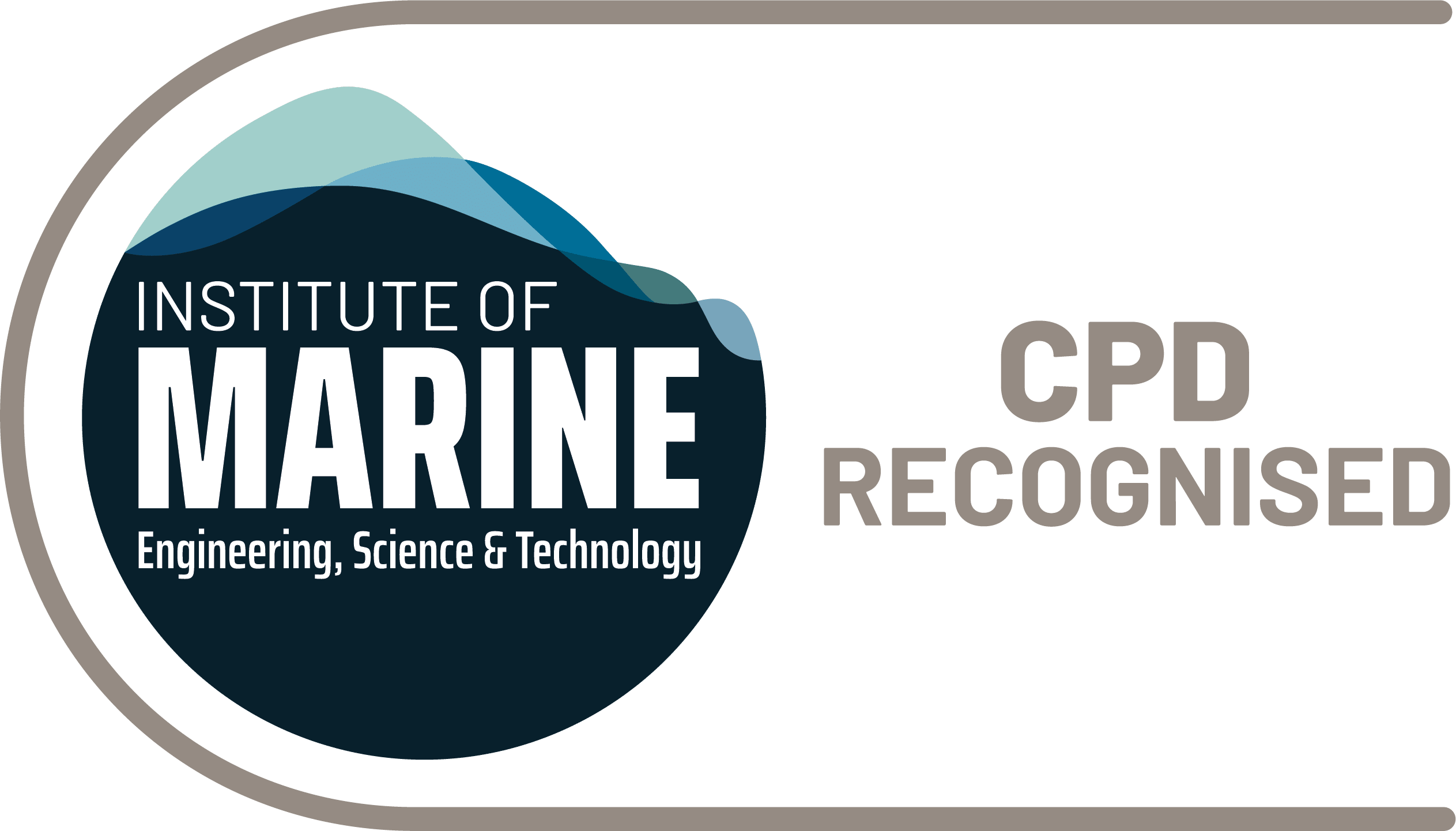DIPLOMA IN
Marine Salvage Operations
Who is This Course Suitable For?
This is a practical guide to the law of salvage and the commercial aspects of the industry and is intended for those in the industry or practitioners in the legal/insurance industries that would like a more general overview of the legal aspects of international salvage together with the more commercial aspects that a pure legal consideration would not necessarily provide.
Duration:
12 – 18 months
Modules:
10 in total
Cost:
Diploma: £2,950
Certificate: £2,150
Recognised by: 
About the Course
This course in Marine Salvage is a practical guide to all the various aspects involved in a professional salvage scenario. It covers the major players in the worldwide salvage industry and links these with a concise summary of the legal and commercial aspects involved in today’s modern salvage environment whilst also looking at how salvage has evolved over the years. Salvage contracts in use today are looked at and the future for salvage in the era of ever larger vessels transiting the oceans.
Studying this Diploma is a great way to boost your career prospects. Many students study to develop themselves in their existing role, while others study with a complete change of career in mind.

Course Structure
The course consists of 10 modules. All students are required to successfully complete and pass the module assignments. Diploma students will also be required to sit and pass a final examination.
1. Introduction To The Salvage Industry
- An overview of world trade
- World casualty statistics
- The International Salvage Union
- International salvage companies
- Introduction to salvage law
- Admiralty law and jurisdiction
- Wreck Law
- International Marine Law
- The flag state
- Governmental control of shipping
- Other organisations involved in the salvage industry
- The challenges facing the salvage industry
2. History Of Salvage
- History of salvage
- Notable salvage operations
- Sources / references
3. Basics Of Salvage
- Introduction
- Salvage principles
- The international convention on salvage
- Salvage claims
- Towage and salvage
- Role of the salvage master
- Role of the special casualty representative
- SCOPIC
- Place of safety and re-delivery to the owner
- General average and salvage
- Other important roles in salvage
4. The Law Of Salvage
- Salvage law background, sources & concepts
- Salvage law in the context of a salvage operation
- How the salvage award is assessed and paid
- Special Situations
5. Lloyd’s Open Form
- Types of harbour tugs
- Towing equipment
- Tug interaction and associated risks during towage operations
- Ship design and towage equipment
- Manoeuvring with tugs
- Escorting with tugs
- Communications & good practice
6. Alternative Agreements
- Japanese form of salvage agreement
- The Turkish salvage agreement
- The Bejing form
- The Russian Federation standard form of salvage contract
- The German Form or ‘Hamburg form’
- Alternative agreements
7. The Coastal State And The Salvor
- Introduction
- Territorial waters
- Innocent passage
- Shipping casualties that resulted in change
- The outcome of the casualties
- The coastal state
- Marine salvage companies
- Obligations of the salvor
- Development of the emergency towing vessel
- IMO guidelines on places of refuge
- Maritime assistance services
- SOSREP – the Secretary of State’s representative
- The United States approach to places of refuge
- Guidelines on the control of ships in an emergency
- European Union approach to places of refuge
- The future
8. Salvage Operations – ONE
- Salvage operations
- Background
- Casualties
- Structural failures
- Fire at sea
- Salvage in the polar regions
9. Salvage Operations – TWO
- Salvage operations part II
- Heavy weather
- Cargo problems
- Stability problems
- Casualty management guidelines
- The equipment and the personnel
- The Future
10. Salvage From The Shipowner’s And Master’s Perspective
- The Parties
- Conflicts of interest
- Operations and interference
- Lessons of the ”Amoco Cadiz” incident
- Lloyds open form – the future
- New Turkish salvage contract
- Rescue towage
Career Pathway
Career path:
Staring as a general dogsbody/diver/seaman in a salvage company working upwards through experience to eventually become a Salvage Master.
Salary:
£45K to £150K
Duties:
All aspects of marine salvage operations which can be local or worldwide.
Meet the Course Director
Jonathan Hadley-Piggin
BSc (Hons), MA, Dip Law, MNI, MRIN, ACI Arb, Solicitor
Jonathan Hadley-Piggin is a solicitor and consultant in the marine and shipping department at Keystone Law a commercial law firm based in London. Jonathan attended Warsash Nautical College in Southampton sponsored by BP Shipping, where he gained a Class III Certificate of Competency (Deck Officer). Following time at sea with BP (including during the Iran/Iraq war) he later gained a commission in the Royal Navy and attended Britannia Royal Navy College, then, sponsored by the Navy read for a degree in Maritime Law and Economics at Cardiff University.
In the Royal Navy he specialised in navigation serving in frigates and nuclear submarines before leaving the Navy to pursue a career in law. Jonathan trained with the City firm Stephenson Harwood where, following qualification he specialised in commercial charter disputes, collision and salvage. He later started to concentrate on the leisure sector both in the UK and abroad particularly in the super yacht arena where he is involved in drafting and negotiating a range of build and repair/refit contracts for super yachts for both builders and owners. Jonathan is a regular speaker at industry events and lectures (where he is also a marker) on the MCA Master Yacht qualification course and for the British Marine Federation.


DIPLOMA IN MARINE SALVAGE
On passing the Diploma, you will receive the above icon. Please use it on your business cards, LinkedIn profile and website(s)!
You can also use these letters after your name: MTA Dip MSalvage
Flexible
Supportive
While the nature of distance learning is independent study, we recognise the importance of support. Students can contact us at any time during their course for assistance and our team of industry experts are always on hand for advice.
Expertise
We have over 50 industry experts writing, developing and advising on our course material. We truly believe that allowing students to tap into their expertise and knowledge is of the utmost importance to fulfil your dream career.
If you would prefer to complete this as a classroom-based course, please contact us.
FAQs
How long do the courses take to complete? What's the difference between a Diploma and a Certificate? Read through our Frequently Asked Questions below to find out the answer.

















 Sign-up to receive email updates
Sign-up to receive email updates